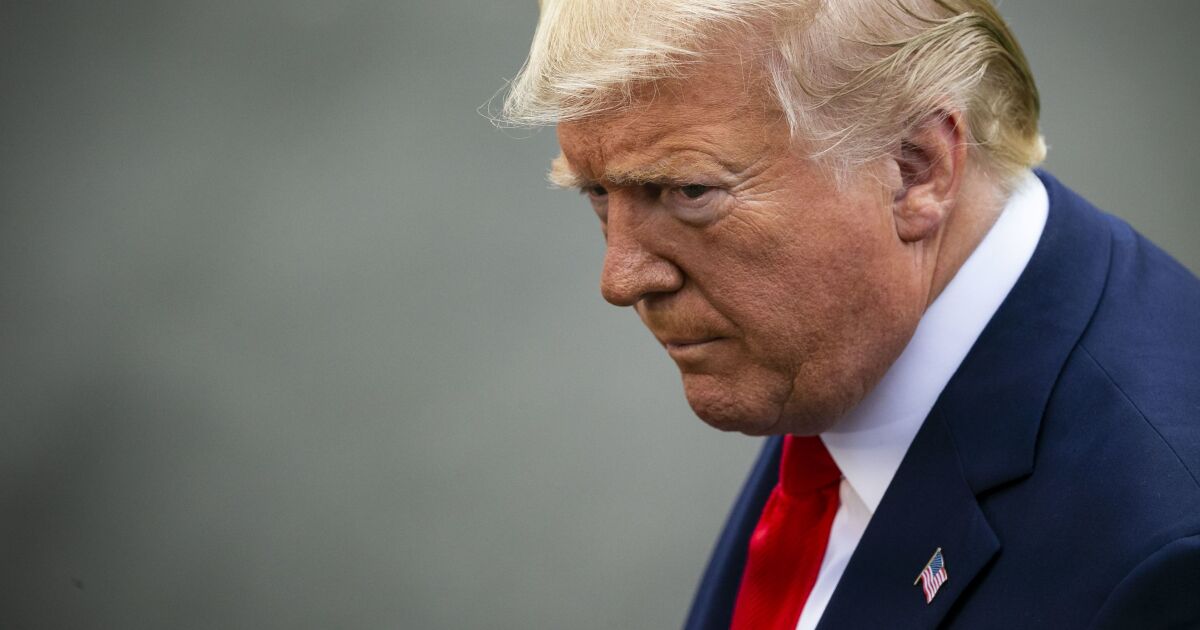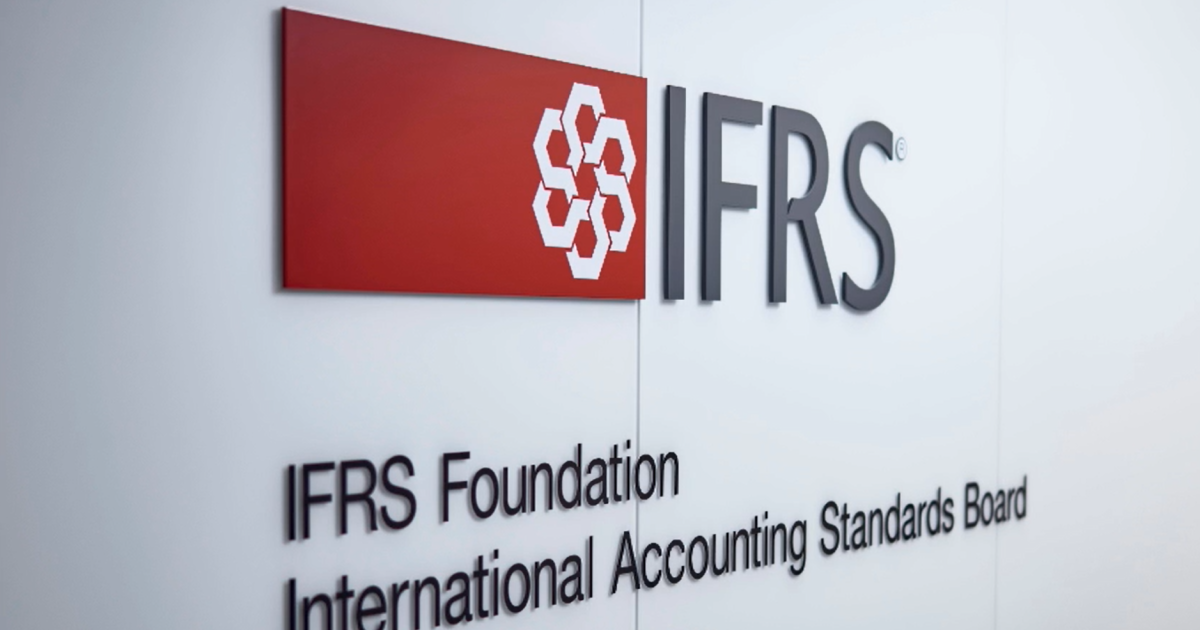Accounting
Trump widens trade fight to include global taxes, regulation
Published
4 months agoon


President Donald Trump is embarking on what may be his most disruptive action yet for the global economy by broadening his grievances to how other countries choose to tax and regulate.
Trump on Thursday
“The numbers are going to be very fair but staggering. They’re going to be large,” Trump told reporters in the Oval Office as he signed a
The move, which Trump said would replace his campaign plan for a universal tariff on imports, immediately puts the European Union and countries including China, India, Mexico and Vietnam in the potential firing line, based on U.S. trade data.
European Commission President Ursula von der Leyen on Friday
Reaction was swift from other major U.S. trading partners. During a joint conference with Indian Prime Minister Narendra Modi on Thursday, Trump
Asian exporters
In Tokyo on Friday, Japan also said it’s
Trump’s plan would, if implemented, mark a departure from how the U.S. has approached tariffs for almost a century and deal a major blow to global trading rules now based on countries granting each other what are known as “most favored nation” tariffs unless they sign special trade deals. It would also turn the definition on its head — reciprocity has up until now referred to lower tariffs on goods.
“Trump is essentially trying to create a justification to impose high tariffs on whoever he wants,” said Sam Lowe, a partner at Flint Global in London, where he heads their trade and market access practice.
Fundamental change, Trump advisers said, is what’s needed. “The idea here is historic and it’s really about a revolution in how the international trading system is organized,” Peter Navarro, a senior trade adviser, told Bloomberg Television.
With his order Trump is also reaching beyond the usual boundaries of his trade fights to how countries collect taxes, apply regulations and standards, and other so-called non-tariff barriers.
Trump singled out the use of value-added taxes, which he and his advisors argue give exporters from other countries an unfair advantage over U.S. ones. More than 160 countries in the world use VAT or similar consumption levies, according to the International Monetary Fund. The U.S., however, bases its national taxes on income.
In the EU and other economies that use them, Trump and his advisors argue, the ability to claim a VAT rebate when products are exported gives European companies an unfair advantage as imports from the U.S. are charged VAT of 15-20% or higher depending on the member country.
“A VAT tax is a tariff,” Trump told reporters Thursday.
Many economists disagree. “Defining a VAT to be a trade barrier isn’t just questionable economics (the VAT is the same on imports and domestic production), it also basically forecloses negotiation, as the EU and others aren’t in a fiscal position to negotiate away its tax base,” Brad Setser, a senior fellow at the Council on Foreign Relations and a former US Treasury official,
In a note to clients, Paul Ashworth, chief North America economist at Capital Economics, said Trump’s plan was likely to have a more damaging impact on the U.S. economy than his previous universal tariff idea.
Just adding the average most-favored nation tariff rate of countries to their VATs would lead to significant reciprocal U.S. tariffs on some of the U.S.’s top trading partners, he wrote. If the U.S. imposes reciprocal tariffs that add VAT rates and MFN tariff rates together, the countries most hit would be India with a rate of 29%, Brazil and the EU.
Such duties alone, Ashworth wrote, would lead to an increase in the average effective tariffs rate on all U.S. imports from 3% currently to around 20%. It would also lead to a temporary rebound in U.S. inflation to around 4% later this year.
The EU stipulates that countries must apply a VAT rate of no less than 15% on most goods and services, though it leaves decisions on actual levels and exemptions to member states. According to ING calculations, the VAT across the 27-nation bloc averaged 21.5% in 2023.
By targeting VAT the U.S. is relaunching a long-running trade fight.
The U.S. and Europe have battled over the treatment of VAT and income taxes in global trading rules since the 1960s with the EU challenging multiple mechanisms the U.S. set up in the 1970s and ’80s to offer a similar export rebate on U.S. corporate taxes levied against revenues. The EU eventually won a World Trade Organization challenge to those mechanisms in the 1990s and since then the U.S. has had no similar export rebates.
Erica York, vice president of federal tax policy at the nonpartisan Tax Foundation, said the Trump administration’s view of VAT reflects a fundamental misunderstanding of how the tax works. VATs don’t discriminate against foreign goods since domestically produced ones face the same taxes in the countries they are sold, she said.
Consumption taxes
“The goal of a value-added tax is to tax domestic consumption,” York said. “There’s no discrimination based on where something was made. It’s just a tax on the stuff that people in a country are buying.”
But Trump’s grievances with other countries go beyond that by targeting regulations and other non-tariff barriers that U.S. goods face overseas.
“We’re going to look at everything,” Jamieson Greer, who is due to become U.S. Trade Representative, told reporters on Thursday, including what he called “fake” anti-trust regimes.
The EU has for years
In the memorandum signed Thursday, Trump ordered officials to include in their tariff calculations “any other practice that” they conclude “imposes any unfair limitation on market access or any structural impediment to fair competition with the market economy of the United States.”
As with many of Trump’s trade actions, optimists believe that they could lead to trade agreements that will avoid the disruptive economic impact of tariffs likely to provoke retaliation by other countries and lead to higher prices and slower growth.
John Veroneau, a partner at law firm Covington & Burling LLP who served as a senior trade official in the administration of President George W. Bush, said Trump’s latest move represents a significant broadening out of his trade conflicts.
“He has raised the stakes. This is now a global enterprise,” Veroneau said, calling it a “huge step” away from the global trading rules first laid out in the 1947 General Agreement on Tariffs and Trade.
‘New phase’
The U.S. is signaling “the start of a new phase in global trade” in which the U.S. uses its power not to influence global rules but the bilateral trade in goods, he said. The best hope, Veroneau said, is that the U.S. can negotiate new deals that don’t lead to escalating trade wars over tariffs.
Equities
Jennifer Hillman, who served as both a senior U.S. trade official and a member of the WTO’s highest court, said the plan laid out by Trump and his advisors would be immensely complex to implement, would likely to lead to chaos and require more funding for border authorities
Interfering in how other countries collect taxes and impose regulations would also inevitably lead to a backlash against the U.S., said Hillman, now a senior fellow at the Council of Foreign Relations.
“We’re just going to make America hated again,” she said. “At some level, for these other countries, it’s just like ‘who are you to tell us that we can’t regulate our own economy?'”
You may like

By any other name; poor Service; a saga continues; and other highlights of recent tax cases.
Rockford, Illinois: Tax preparer Gretchen Alvarez, 49, has pleaded guilty to preparing and filing false income tax returns.
She operated the tax prep business Sick Credit Repair Tax and Legal Services and represented herself as an income tax preparer. Alvarez did not have a PTIN and admitted that in 2019 and 2020 she misrepresented taxpayers’ eligibility for education credits and deducted fictitious business expenses from their taxable income to reduce tax liabilities and inflate refunds.
The tax loss totaled $356,881.
Sentencing is Sept. 17. Alvarez faces a maximum of three years in prison and a fine of up to $100,000.
Bangor, Maine: Paul Archer, a Florida resident formerly of Hampden and Orrington, Maine, has pleaded guilty to attempting to evade federal taxes and engaging in fraudulent transfers and concealment in a bankruptcy proceeding.
He operated an online marketing business for software installation, earning several million dollars from 2013 through 2015. After an IRS audit in 2016 assessed a federal tax debt totaling some $1 million, Archer concealed and transferred assets through two LLCs he controlled and began using third-party bank accounts to evade paying the tax debt. From April 2018 through November 2019, he transferred and concealed assets and income by using a series of bank accounts held in the names of Max Tune Up LLC; Stealth Kit LLC; his father; and his spouse.
In March 2019, Archer filed for Chapter 7. In his paperwork and court statements, he falsely claimed less than $50,000 in assets; a single checking account; no other assets or property interests; no recent asset transfers; and no connections to any businesses or memberships in any LLCs.
He faces up to five years in prison and a fine up to $250,000 on each of the two charges to which he pleaded guilty. Any sentence will be followed by up to three years of supervised release.
Fort Wayne, Indiana: Rakita Davis, 45, a former IRS employee, has been sentenced to two years of probation and ordered to pay $55,213.61 in restitution to the Small Business Administration after pleading guilty to wire fraud associated with pandemic relief.
Davis falsely claimed gross income for a business that did not exist when she applied for two Paycheck Protection Program loans in 2021. Employed by the IRS when she applied for the loans, Davis lied that she was the sole proprietor of a catering business when no such business existed. She received PPP funds that she spent on such personal items as jewelry, airfare, luxury car rentals and vacations.
Charleston, West Virginia: Business owner Luther A. Hanson has been sentenced to three years of probation and fined $5,000 for willful failure to pay over taxes.
From at least 2015 to September 2020, Hanson, who
Hanson admitted that prior to June 30, 2015, he and the two employees agreed that he would begin treating them as independent contractors. He also admitted that he knew this arrangement would relieve him of paying the employer portion of the employment taxes and of the employees’ withholdings. Neither employee changed their job duties.
He admitted that he knew that neither was an independent contractor while he paid each by check throughout their employment. Hanson further admitted that he did not pay the trust fund taxes to the IRS nor the employer’s share of employment taxes for the two employees each quarter during the arrangement.
The court previously determined that Hanson owed $146,771.37 to the U.S. after his scheme; Hanson paid that amount before sentencing. One of the employees paid a portion of the taxes owed, resulting in the adjusted figure of restitution Hanson owed.

Oakland, New Jersey: Business owner Walter Hass, of Hewitt, New Jersey, has been sentenced to four years in prison for his role in a $3.5 million payroll tax scheme.
Hass owned and operated a shipping and logistics company and since 2014 has operated the company under three different names. He failed to collect, account for and pay over payroll taxes to the IRS on behalf of each of these companies from 2014 to 2022, a total of at least $3.5 million.
Hass used company money to fund his personal lifestyle, including the purchase of luxury vehicles, high-end watches and jewelry, designer clothing, tickets to sporting events, home renovations, vacations, water sports vehicles and extravagant meals.
After signing his guilty plea in October 2023, he embarked on a campaign to avoid responsibility for his conduct. He lied to the court, to the U.S. Probation Office and to the government about a purported cancer diagnosis to delay the entry of his guilty plea and his sentencing. Hass fabricated three letters from physicians asserting that he had medical conditions, including kidney cancer, that prevented him from attending court proceedings. Hass did not have cancer and attempted to travel throughout the country and around the world during this time.
Hass was also sentenced to three years of supervised release and ordered to pay $3,527,645 in restitution.
Atlanta: Attorney Vi Bui has been sentenced to 16 months in prison for obstructing the IRS in connection with his participation in the promotion of abusive syndicated conservation easement tax shelters.
Bui, who
The scheme entailed creating partnerships that bought land and land-owning companies and donated easements over that land or the land itself. Appraisers generated fraudulent and inflated appraisals of the easements, and the partnerships then claimed a charitable contribution deduction based on the inflated value. Bui knew that to make it appear that the participants had timely purchased their units in the shelters, Fisher, Sinnott and others backdated and instructed others to backdate documents, including subscription agreements and checks.
Bui anticipated that the transactions would be audited. He and others created and disseminated lengthy documents disguising the true nature of the transaction, instituted sham “votes” for what to do with the land that the partnership owned despite knowing that outcome was predetermined, and falsified paperwork such as appraisals and subscription agreements. Bui earned substantial income for his role in the scheme.
He also used the fraudulent shelters to evade his own taxes, filing personal returns from 2013 through 2018 that claimed false deductions from the shelters.
He was also ordered to serve a year of supervised release and to pay $8,250,244 in total restitution to the IRS.


The International Financial Reporting Standards Foundation has posted profiles of 17 of the 36 jurisdictions around the world that have either adopted or used International Sustainability Standards Board disclosures or are in the process of finalizing steps to introduce the IFRS Sustainability Disclosure Standards in their regulatory frameworks.
The
“Why is the IFRS Foundation publishing these jurisdictional profiles, which set out by country or jurisdiction their approach to sustainability reporting. It’s really because we see this as part of our commitment to provide transparency to the market,” said ISSB vice chair Sue Lloyd during a press briefing. “It’s all very well talking about the use of our standards, but we know that different jurisdictions have made different decisions. They’re adopting the standards at a different pace, and by providing these profiles, we want to provide clarity, particularly for investors who are going to be relying on understanding the comparability of information between jurisdictions, to alert them to the similarities and differences in approach and to describe the extent to which we are achieving the global comparability that we have been working toward with the ISSB standards.”
She noted that the ISSB’s sister board, the International Accounting Standards Board, has also been publishing
The profiles are accompanied by 16 snapshots that provide a high-level overview of other jurisdictions’ regulatory approaches that are still subject to finalization. Of the 17 jurisdictions profiled, 14 have set a target of “fully adopting” ISSB standards, two have set a target of ‘adopting the climate requirements’ of ISSB standards, and one targets “partially incorporating” ISSB Standards. The profiled jurisdictions cover Australia, Bangladesh, Brazil, Chile, Ghana, Hong Kong, Jordan, Kenya, Malaysia, Mexico, Nigeria, Pakistan, Sri Lanka, Chinese Taipei, Tanzania, Türkiye and Zambia.
Accounting Today asked Lloyd about the United States, where the Securities and Exchange Commission’s
“What we are seeing continue to be the case in the U.S. is very strong investor interest in sustainability information, including from the use of the ISSB standards,” Lloyd said. “We also have interest from companies who can choose to provide the information using our standards. Of course, many companies in the U.S. in the past have chosen to use the Sustainability Accounting Standards Board standards voluntarily, so that sort of voluntary adoption momentum is something we still see from the company and the investor side.”
“I think it’s also important to remember that the SEC just recently reconfirmed that if information on things like climate is material, there’s already a requirement to provide material information in accordance with existing requirements in place,” she continued. “And the last thing I’d note on the U.S. front is that while the SEC has indeed moved away from their proposed rule, we do see action at a state level, including, for example, in California, where the CARB [California Air Resources Board] is looking at climate disclosures, including the potential to allow the use of the ISSB standards to meet those requirements, so we see progress, but in different ways perhaps.”
The
Of the 16 jurisdictional snapshots published by the IFRS Foundation, 12 propose or have published standards (or requirements) that are fully aligned with ISSB standards (such as Canada) or are designed to deliver outcomes functionally aligned with those resulting from the application of ISSB standards (such as Japan). Three propose standards (or requirements) that incorporate a significant portion of disclosures required by ISSB standards, and one is considering allowing the use of ISSB standards. For these jurisdictions, their target approach to adoption is yet to be finalized. Once jurisdictions have finalized their decisions on adoption or other use of ISSB standards, the IFRS Foundation plans to publish a profile for these jurisdictions.
“The ISSB standards are bringing clarity to investors on the risks and opportunities lying in value chains across time horizons in a rapidly changing world,” said ISSB chair Emmanuel Faber in a statement Thursday. “A year ago, we committed to publishing detailed jurisdictional profiles describing adoption of our standards to complement our Inaugural Jurisdictional Guide. The profiles provide a detailed current state-of-play to investors, banks, and insurers who continue to struggle with the lack of appropriate, comparable and reliable information on these critical factors affecting business prospects. We have seen new jurisdictions joining the initial cohort of ISSB adopters every month, with a total of 36 today.”
Accounting
IRS extends deadline on crypto broker reporting and withholding
Published
18 hours agoon
June 12, 2025

The Treasury Department and the Internal Revenue Service are giving cryptocurrency brokers additional time to comply with requirements to report on digital asset sales and withhold taxes.
In
In 2024, Treasury and IRS
The IRS said it has received and carefully considered comments from the public about the transition relief provided in Notice 2024-56 indicating that brokers needed more time to comply with the reporting requirements; today’s notice addresses those comments.
In the new Notice 2025-33, the Treasury and the IRS extended the transition relief from backup withholding tax liability and associated penalties for any broker that fails to withhold and pay the backup withholding tax for any digital asset sale or exchange transaction effected during calendar year 2026.
The Trump administration has been notably more supportive of the crypto industry since taking office,
The notice also extends the limited transition relief from backup withholding tax liability for an extra year. That means brokers won’t be required to backup withhold for any digital asset sale or exchange transactions effected in 2027 for a customer (payee), if the broker submits that payee’s name and tax identification number to the IRS’s TIN Matching Program and receives a response that the name and TIN combination matches IRS records. They’re also granting relief to brokers that fail to withhold and pay the full backup withholding tax due, if the failure is due to a decrease in the value of withheld digital assets in a sale of digital assets in return for different digital assets in 2027, and the broker immediately liquidates the withheld digital assets for cash.
This notice also includes more transition relief for brokers for sales of digital assets effected during calendar year 2027 for certain customers that haven’t been previously classified by the broker as U.S. persons.

CVX, UAL, NOC, RH and more

Summer Fridays are increasingly rare as hybrid schedules gain steam

How House Republicans’ ‘big beautiful’ bill may affect children

New 2023 K-1 instructions stir the CAMT pot for partnerships and corporations

The Essential Practice of Bank and Credit Card Statement Reconciliation

Are American progressives making themselves sad?
Trending
-

 Economics7 days ago
Economics7 days agoJobs report May 2025:
-

 Economics7 days ago
Economics7 days agoDonald Trump has many ways to hurt Elon Musk
-

 Finance7 days ago
Finance7 days agoStocks making the biggest moves midday: WOOF, TSLA, CRCL, LULU
-

 Economics5 days ago
Economics5 days agoSending the National Guard to LA is not about stopping rioting
-

 Economics7 days ago
Economics7 days agoDonald Trump has many ways to hurt Elon Musk
-

 Blog Post6 days ago
Blog Post6 days agoMastering Bookkeeping Tasks During Peak Business Seasons
-

 Personal Finance5 days ago
Personal Finance5 days agoWhat Pell Grant changes in Trump budget, House tax bill mean for students
-

 Personal Finance6 days ago
Personal Finance6 days agoForgotten 401(k) fees cost workers thousands in retirement savings
